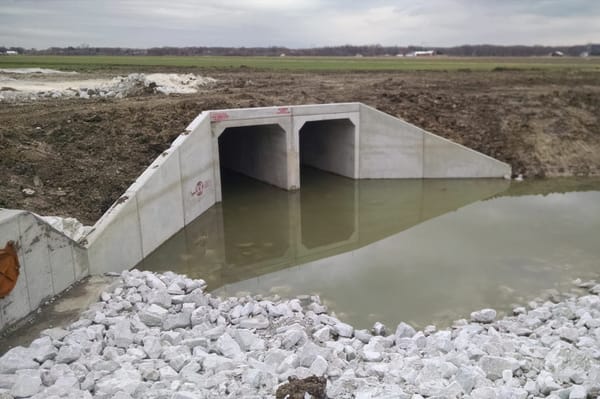In today’s construction industry, gaining a competitive edge relies on adopting advanced tools and technologies. This shift is essential for enhancing operational efficiency, productivity, and profitability.
As the industry evolves, quickly adopting these innovations is crucial for businesses looking to lead the market. Embracing modern methods is vital for growth. Knowing how to grow a construction business in this technology-focused era is essential, as it enhances workflows, project management, and customer satisfaction.
Read on to learn how these tools can elevate your success in construction.
Benefits Of Modern Tools In Construction
Integrating modern tools in the construction industry marks a significant leap toward greater efficiency and innovation.
The following are some key benefits of adopting these modern tools:
- Increased efficiency: Modern tools, particularly in project management and on-site machinery, streamline operations significantly. Automated processes reduce the time and workforce required for tasks, allowing for quicker project turnover and the ability to manage multiple projects more effectively.
- Improved accuracy: Using technology such as GPS and laser-guided systems in construction brings a previously unattainable precision. This precision minimizes errors, reduces waste, and ensures that projects meet stringent quality standards.
- Advanced safety features: Safety is paramount in construction, and modern tools have significantly enhanced this aspect. Equipment now comes equipped with sophisticated safety features that reduce the risk of accidents, ensuring a safer work environment for all involved.
By harnessing these advantages, construction firms can stay in step with the evolving industry and distinguish themselves as forward-thinking pioneers.

Selecting The Right Tools For Your Business
Choosing the right tools for a construction business is a decision that can significantly impact its growth and efficiency.
Below are crucial points to consider when selecting tools for your construction business:
- Assessing business needs: Begin by evaluating the specific needs of your business. This includes considering the types of projects you undertake, the size of your operations, and your future growth plans. It’s important to factor in the trend towards eco-friendly construction practices, ensuring the tools you select support sustainable project goals.
- Compatibility with existing systems: Selecting tools that integrate seamlessly with your current systems and processes is vital. This ensures a smooth transition and reduces the learning curve for your team. Look for tools that complement and enhance your existing workflows rather than replacing them entirely.
- Cost compared to return on investment (ROI): While cost is a significant factor, it’s more important to consider the long-term ROI. Investing in higher-quality, more expensive tools can lead to long-term efficiency and cost savings, outweighing the initial expense.
Careful consideration of these factors helps select tools that align with your business model and drive its expansion and success.
Integrating Technology Into Your Construction Business
Incorporating technology into a construction business is a transformative process that requires a well-planned and executed strategy.
The following steps are essential for effective technology integration:
- Develop a comprehensive integration plan: Start with a clear plan that outlines the objectives, timelines, and responsibilities. This plan should detail how the technology will be implemented, who will be involved, and the goals you aim to achieve. A structured approach ensures a smoother transition and helps manage expectations.
- Training and empowerment of staff: Staff training is crucial for successfully adopting new technology. Provide comprehensive training sessions to ensure your team is proficient in using the latest tools. Encourage a culture of learning and innovation where employees feel empowered to utilize technology to its fullest potential.
- Continuous monitoring and feedback: Regularly monitor the integration process and gather stakeholder feedback. This feedback is vital for identifying challenges, making necessary adjustments, and ensuring the technology meets its objectives.
Following these steps can turn technology into a driving force in your construction business, enhancing efficiency and fostering future growth and success.
Measuring The Impact Of Technology On Business Growth
Evaluating the impact of technological integration on business growth is critical for understanding its effectiveness and return on investment.
Below are key metrics and methods for measuring this impact:
- Project completion times: Monitor the duration of project cycles before and after technology integration. A significant reduction in completion times often indicates improved efficiency and productivity, a direct benefit of technology adoption.
- Cost savings: Assess the financial aspects by comparing costs incurred before and after implementing new technologies. This includes savings in labor, materials, and operational costs. A decrease in these costs can be attributed to the increased efficiency brought about by technology.
- Client satisfaction: Evaluate client feedback and satisfaction levels. Enhancing project quality, accuracy, and timeliness through technology typically results in higher client satisfaction, a strong indicator of successful technological integration.
Regularly measuring the impact of technology in construction ensures alignment with growth goals and ongoing tangible benefits.
Conclusion
The strategic adoption of modern tools in the construction industry is a decisive move towards matching pace with technological advancements and carving a niche in an increasingly competitive market. This journey, from tool selection to integration and impact measurement, reflects a commitment to innovation and continuous improvement. Ultimately, these efforts culminate in a transformative impact on the industry, paving the way for a future where technology and construction harmoniously drive progress and success.






